
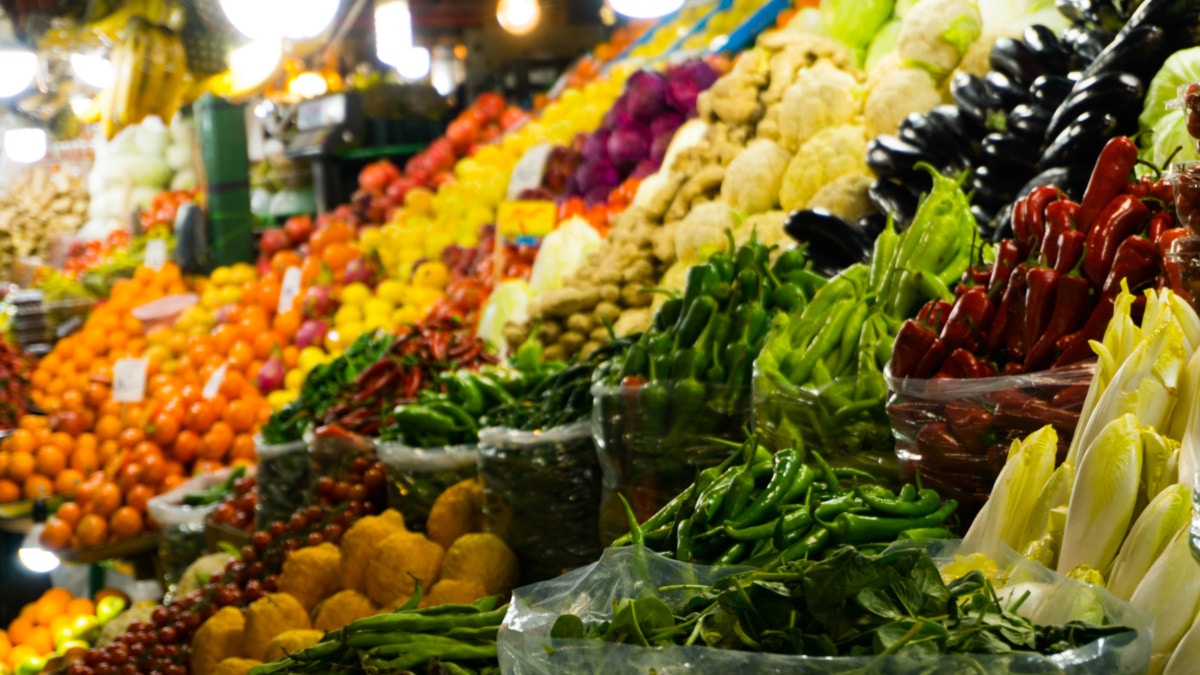
Today shoppers have more than 47,000 products to choose from. Sepehr Behnamifar / Unsplash
By Gwen Ranniger
The grocery store is a wonderful place: thousands of ingredients and products at your fingertips available to combine, cook, and eat. However, that choice can be overwhelming: while shoppers in the 1970s chose from a mere 9,000 products, shoppers today choose from more than 47,000.
Selecting food that is clean and healthy for you and your family can be daunting, so we’ve put together 10 tips for cleaner grocery shopping that will help to navigate your options.
We’re defining clean here as products devoid of pesticides, additives or preservatives, and packaging by-products.
1. Your Most General Rule of Thumb: Try to Select the Bulk of Your Groceries From the Outside Perimeter of Your Grocery Store

Most stores line the walls with the simplest of products: produce, the butcher, the bakery, dairy, etc. Aisles in the middle contain most of the processed foods that generally have additives and preservatives it’s better to avoid.
Now, there are caveats to this rule. For example, the bakery often also has items such as highly-refined cakes and cookies that are by no means beneficial to your health, and the dairy section provides a hearty supply of artificially flavored and sweetened creamers. You can find unhealthy products in every department, but the departments around the perimeter of the store contain the most whole, simple ingredients.
2. Buy Local
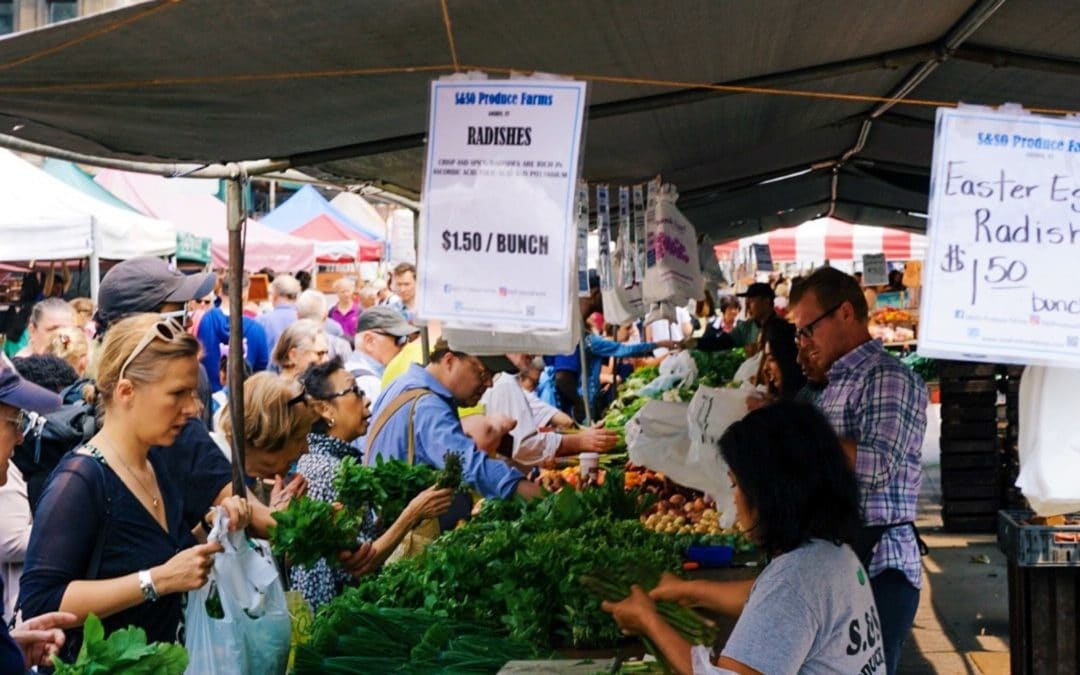
First and foremost, buy local. This can be anything from the weekly farmer’s market to a local bakery to local ingredients sourced by your grocery store. Smaller businesses are more likely to use safer practices when cultivating their goods.
Buying local also reduces your carbon footprint. Imported ingredients contribute to fuel consumption and air pollution as they’re flown in from overseas or driven across the country in a semi-truck. Local produce is fresher, often cleaner, and require less waste to get to you.
3. Buy Organic
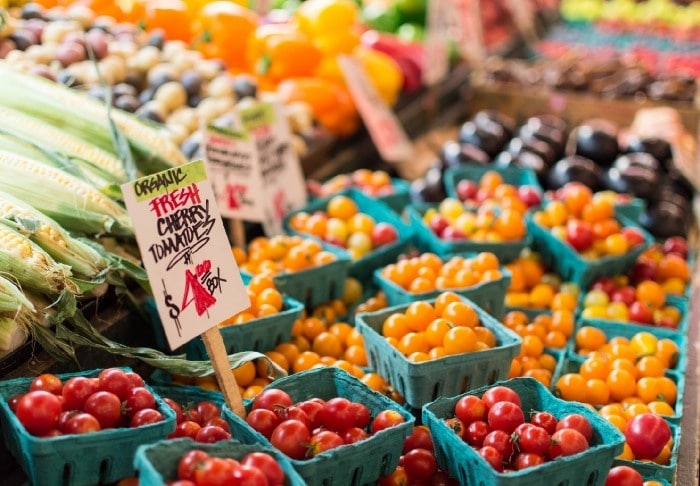
Purchase organic food when possible, as it’s grown without pesticides, synthetic fertilizers, etc. Particularly pay attention to the EWG’s “Dirty Dozen” – the produce with the most pesticide residue.
- This year’s list includes strawberries, spinach, kale, nectarines, apples, grapes, peaches, cherries, pears, tomatoes, celery, and potatoes.
If your budget doesn’t allow for all things organic, don’t sweat it: it’s better to gain the nutrients of produce, organic or not, than to go without.
4. Consider Frozen

Frozen foods get a bit of a bad reputation, but many companies have stepped up their game and you can find a variety of nutritious options in the frozen section.
If the fresh produce doesn’t look good, opt for frozen fruits and vegetables: they’re flash-frozen right after picking so often they are more fresh than the “fresh” produce, depending on where you live.
5. Try to Stick to “Whole” Ingredients
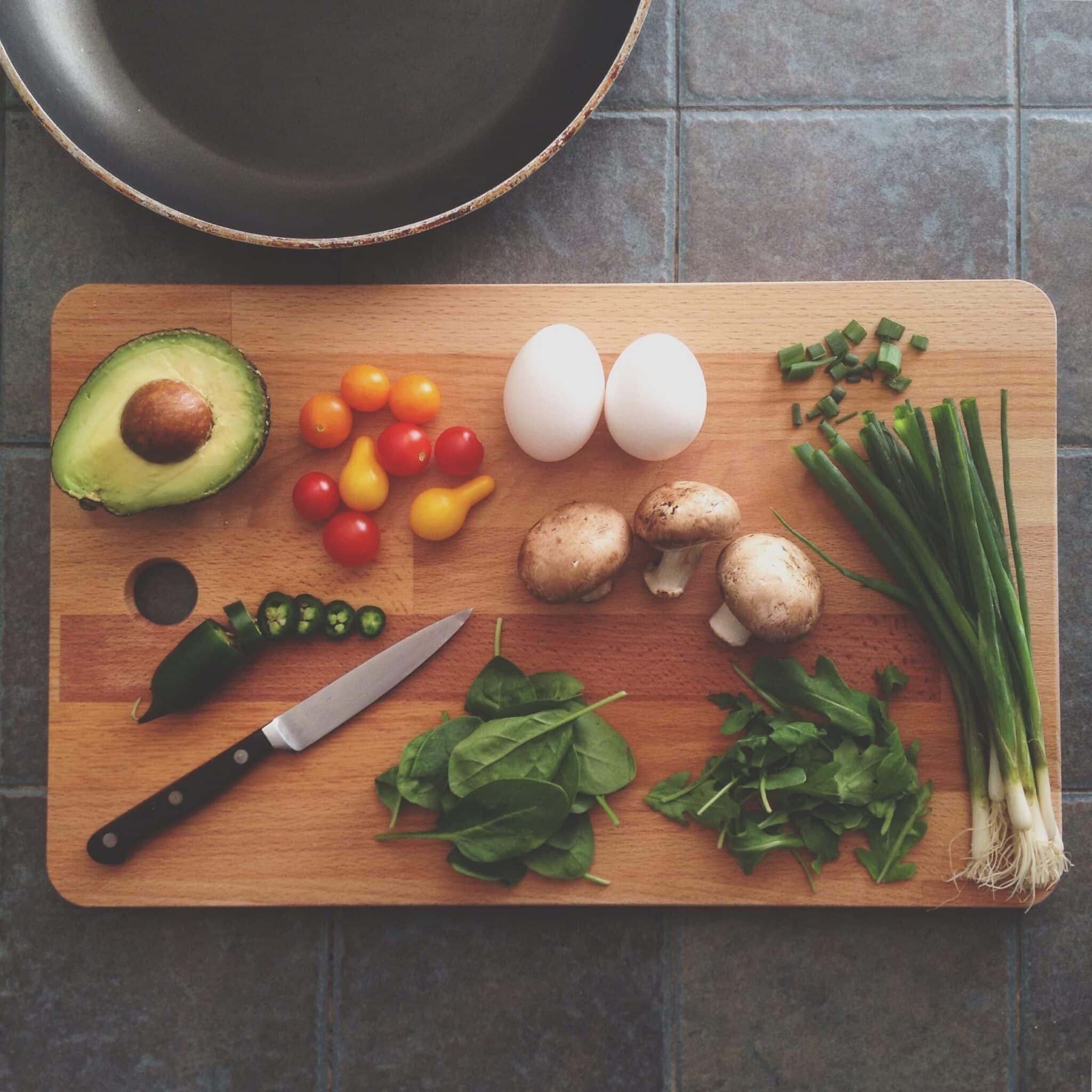
An easy way to eat cleanly is to eat simply. Shopping the perimeter of the store will already introduce you to many unprocessed foods – but the interior aisles have options too. Flour, nuts, dried fruits, beans and rice are all examples of whole foods.
The biggest thing? Check the ingredients list. The simpler the ingredients, the better. If you don’t recognize or can hardly read the ingredients, do without.
A Few More Tips:
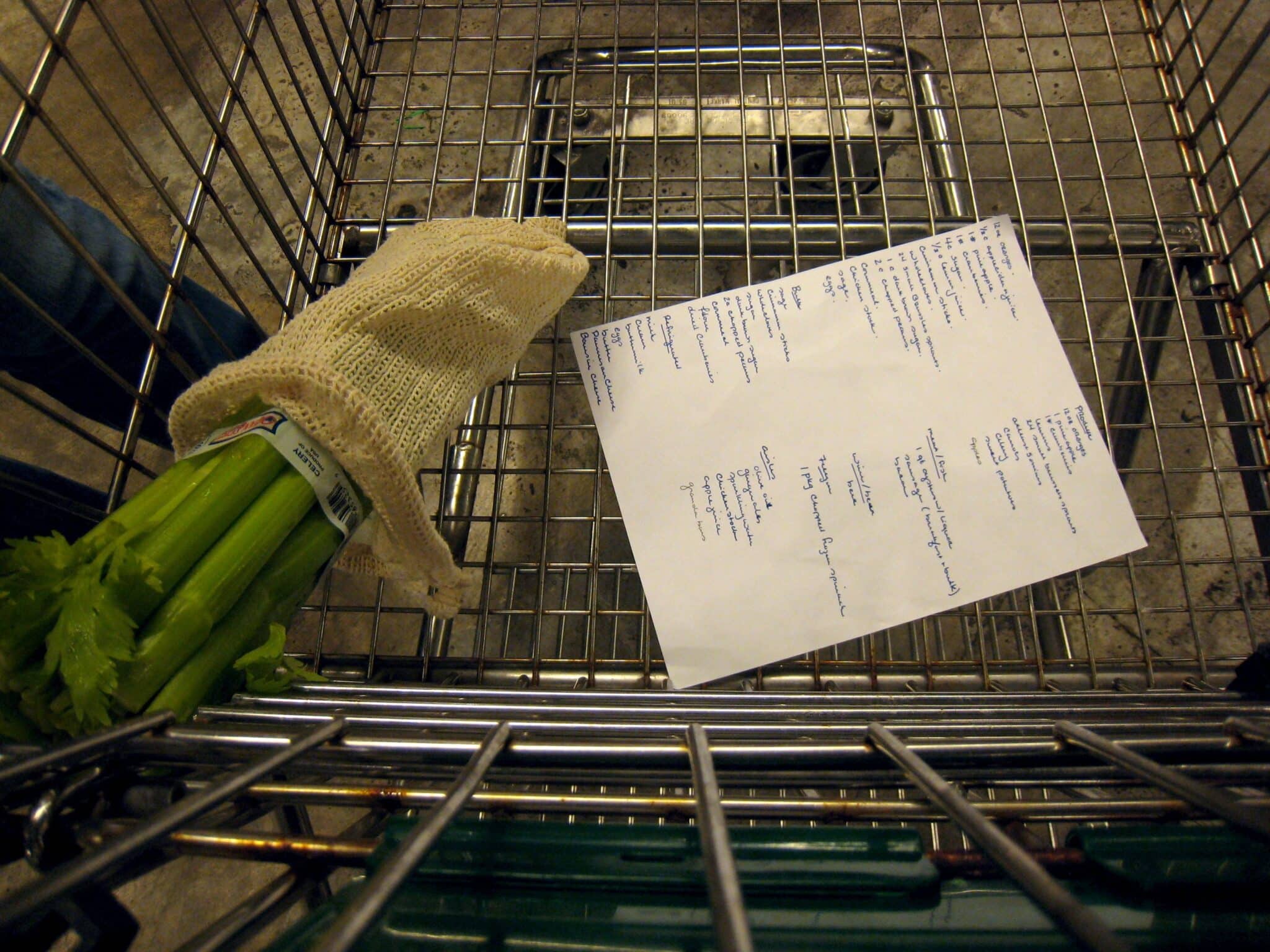
Bruce/flickr
- Go in with a list. Studies have shown that entering the store with a set list of items to purchase reduces impulse purchases – most of which happen in the candy, cookies, and chips section.
- Bring reusable bags. Clean grocery shopping is not only what you buy, but also what you carry your groceries home in. Single-use plastic bags are unsustainable and end up littering our environment and clogging waterways. Many European countries have banned them, with some U.S. cities and states beginning to follow suit. If you don’t already, bring bags from home. It is an easy transition to reduce your waste (and those bags carry so much more, anyways!)
- Online grocery shopping continues to grow in popularity as the pandemic drags on. You can follow these same steps while shopping online – products should be clearly labeled and many stores even have filters that allow you to narrow down your search to only organic products.
- Reduce consumption of canned goods. While many canned goods, especially fruits and vegetables, do not contain many ingredients, they contain a harmful by-product from their packaging: BPA. Check out our guide to BPA to learn more.
- If possible, buy in bulk. Bulk purchases often save you money in terms of price per ounce, and reduce packaging waste. Be smart about what you bulk-buy – make sure that the item won’t go bad before you get around to using it, and that you have room for the bulk items back at home.
The Bottom Line
The food we eat is a huge indicator of our health. Eating cleanly and simply, exposing your body to as few toxic pollutants as possible, will benefit your wellbeing. Be flexible; sometimes the only option may be non-organic or in the frozen section. Pick and choose what works for you and your budget, and know that every step toward eating cleanly is a step in the right direction.
Reposted with permission from Environmental Health News.
- World's First Vegan Supermarket Chain to Open in Portland ...
- Concerned About Food Waste? Study Finds Meal Kits May Be ...
- 5 Ways to Make Grocery Shopping Healthier for You and the Planet ...

 233k
233k  41k
41k  Subscribe
Subscribe 